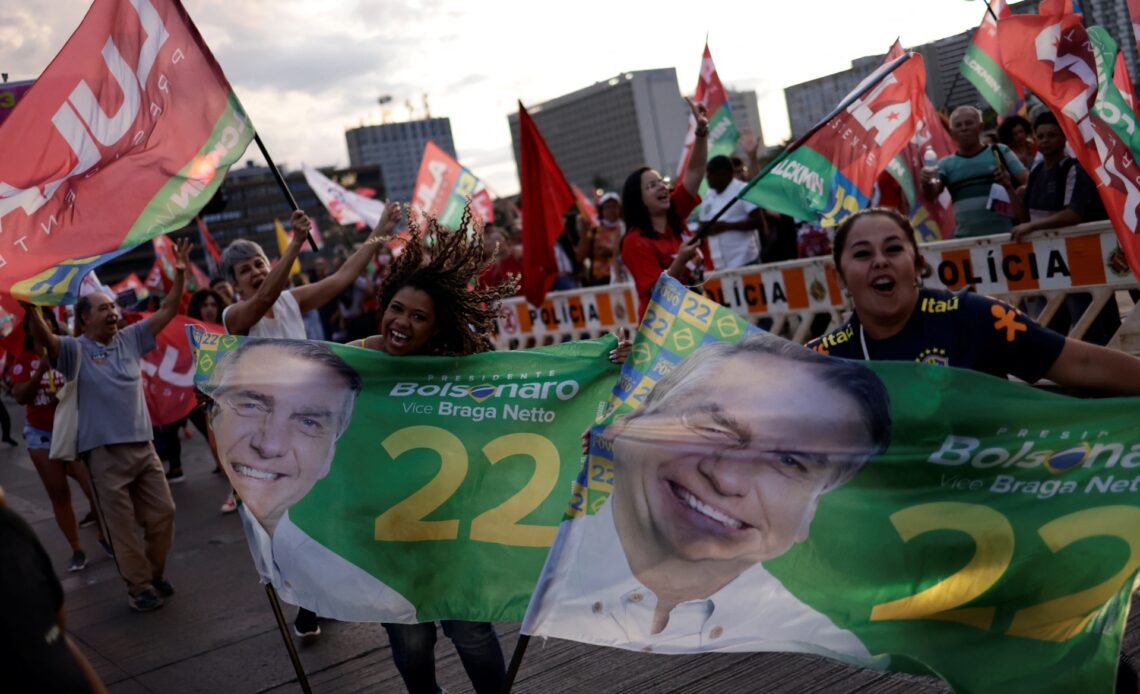Brazilians are heading to the polls after what has been described as the country’s most polarised election campaign, pitting far-right President Jair Bolsonaro against his left-wing rival, Luiz Inacio Lula da Silva.
Lula is going into the second round of presidential voting on Sunday with a stable lead over Bolsonaro, most recent polls have shown.
However, polling ahead of the first round underestimated voters’ support for the incumbent, prompting public backlash and forcing a second round.
Here’s all you need to know about the tightly contested vote:
Why did the election go to a second round?
Brazil held a first round of voting on October 2, but none of the 11 presidential candidates secured an outright majority.
That set up Sunday’s run-off between Lula and Bolsonaro, who finished with 48 and 43 percent support, respectively.
Governorships in states where no candidate won a first-round majority will also be up for grabs.
What have the presidential candidates promised?
Lula, who served as president from 2003 to 2010, has appealed to Brazilians to elect him to help “rebuild and transform” the country after four years under Bolsonaro.
He has pledged to support low-income citizens and reinstate environmental protection policies, especially in the Amazon, which has seen a surge in deforestation and increased attacks against Indigenous people in recent years.
Bolsonaro, whose mantra is “God, family, country”, has announced new support programmes for poor Brazilians while promoting economic development and promising to tackle crime and corruption. He also has stressed conservative values, including his opposition to legalised abortion and drugs while falsely warning that Lula’s return would lead to the persecution of churches.
“Lula’s campaign is about the past; that is its biggest strength and biggest weakness,” Brian Winter, vice president for policy at the Americas Society/Council of the Americas, recently told The Associated Press.
“It is the memory of boom years of the 2000s that makes people want to vote for him. But his unwillingness or inability to articulate new ideas and bring in fresh faces has left him somewhat helpless as Bolsonaro closes the gap.”
Where do Bolsonaro and Lula get most of their support?
Typically, support for Lula and his Workers’ Party has come from working-class Brazilians and…

